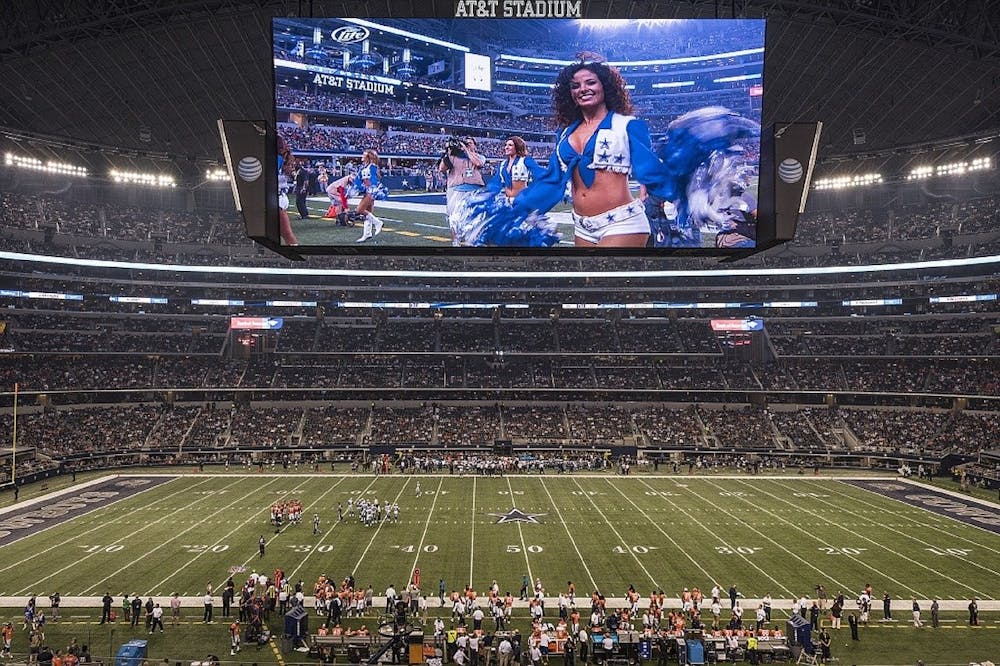As the light at the end of the COVID-19 coronavirus tunnel ever so slowly materializes, a difficult decision burdens the signal-callers of the world of sports: Should professional sports leagues reboot their seasons, even if the structure of the product does not resemble what it was designed to be?
Or should officials bypass the 2020 seasons altogether and set sights on a return to normalcy in 2021?
The chance of unobstructed 2020 seasons is already too far gone. The National Basketball Association (NBA) suspended play indefinitely on March 11, approximately three-fourths of the way through the season. The National Hockey League (NHL) followed suit the next day. Major League Baseball’s (MLB) season was set to open on March 26. And the National Football League (NFL), which is set to kick off on Sept. 10, is already facing obstacles as cities ban large public gatherings for the rest of 2020.
Officials from each league have spent the last month brainstorming ways to resume play while preserving as much of the league’s schedule as possible. They have promised to leave no stone unturned.
Each league has proposed ideas that seem outlandish at first glance. The NBA and NHL have mentioned scrapping the rest of their regular seasons altogether and immediately starting the playoffs. From a league-wide playoff tournament to entire conference and division realignments, league officers are committed to considering every option on the table.
MLB has contemplated having all 30 teams relocated to Arizona for the season, and turning a five-stadium hub in the desert into a sort of secluded baseball ecosystem. It has also pitched a 60-day fall tournament that eventually wittles the league’s 30 teams down to one champion.
The NBA has a similar bubble idea to that of MLB, but envisioned its basketball quarantine bubble in Disney World or Las Vegas.
The NHL offered up a 24-team playoff that sees almost 80% of the league making the postseason tournament.
The NFL released a contingency plan that includes a start date sometime in mid-October, a Super Bowl at the end of February and games being played in partially or fully-emptied stadiums.
Players, owners and sports news media have scoffed at many of the proposals, calling them preposterous and far-fetched.
They’ve argued that the champions of these seasons and tournaments will not be legitimate and will be marked with an asterisk in the history books. They’ve contended that the product would be watered down and won’t bear any semblance to the way the sport was meant to be played.
Sports purists claim that they would rather take the year off from sports than see a weakened version of the competitions in 2020.
But the skeptics do not represent the masses. People in America want, miss and need sports. They are starving for them.
The two sporting programs shown during the pandemic — the 2020 NFL Draft and the Michael Jordan docuseries, “The Last Dance” — have seen sky-high ratings.
The draft, which took place virtually from April 23-25, was as highly-anticipated as ever and its ratings proved it. Between the three networks it was aired on — ESPN, ABC and NFL Network — it averaged 15.6 million viewers, a 37% increase from last year’s 11.1 million, according to The Hollywood Reporter.
ESPN began airing “The Last Dance” on April 19, and, according to Nielsen, the six episodes have quickly become the six most-viewed original broadcasts on ESPN since 2004.
Sports connect people and bring them together in times of need. Just look at Mike Piazza’s iconic home run in New York 10 days after the Sept.11 attacks. Or the New Orleans Saints’ return to the Superdome in 2006 after Hurricane Katrina ravaged the Gulf Coast a year prior.
Sports are woven into the fabric of American culture, and can be an important escape from the doom and gloom news cycle of 2020.
Of course, sports leagues should not resume play until it is deemed safe to do so by public health officials.
But the sports industry has a unique opportunity to return to a desperate, captive audience. And it would be foolish to waste such an opportunity.




The Slate welcomes thoughtful discussion on all of our stories, but please keep comments civil and on-topic. Read our full guidelines here.